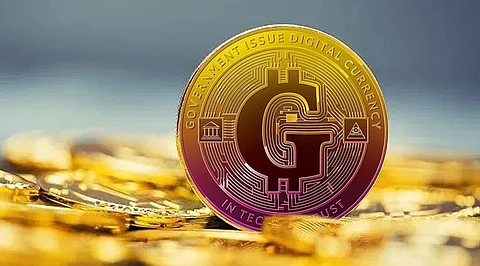
- Insights
- Cryptocurrencies
- Stocks
- White Papers
- Industry
- Geography
- Insights
- Cryptocurrencies
- Stocks
- White Papers
- Industry
- Geography


If you have not heard of Govcoins before, you will soon be hearing a lot about it. While the world is surfing on the cryptocurrency tide, Govcoins are governments and central banks' response to digital currency. They aim to modernize the financial sector as well as redirect people's attention towards a centralized system, altering geopolitics and control the way modern capital is allocated.
What cryptocurrencies do is decentralize the economy and spread the monetary assets through networks. Of late, Bitcoin and other cryptocurrencies have been involved in money laundering and illegal activities, as more organizations are embracing the change and adopting blockchain technology. Now that digital currency is taking over traditional concepts of money, governments want to make the economies more functional and regain the lost power through Govcoins.
Instead of operating with a bank account, individuals can directly use Govcoins via a central bank through an app. Instead of writing cheques and using cards, an inexpensive central bank network will be established to purchase goods and services.
This idea has clicked with more than 50 monetary authorities. China is leading this change with its e-Yuan which is currently being used by more than 50,000 people. Next in line is the European Union that wants to launch a virtual Euro by 2025, and the United States is in process of preparing an E-Dollar.
Authorities aim to make Govcoins mainstream as they fear that central banks and governments will lose the ability to intervene in the matter of assets, especially if cryptocurrencies reach more masses. Another reason is to uphold the value of money as a stable unit of measurement, eliminating the volatility that comes with cryptocurrency.
Fiat currency lacks in certain areas. Unsecured depositors might have to bear the grunt of financial risk in case of a bank collapse. Bitcoins and other cryptocurrencies are also not widely accepted yet and credit cards come with transaction fees. To counter these issues, government-backed e-currencies will be efficient as they will have the stability that comes with state guarantees and make transactions cheaper with a central payment hub.
Govcoins, have the capability to reduce the operation costs of the global finance industries, making them accessible to the masses without bank accounts. They can also reduce interest rates by enabling direct payments to the citizens. On the whole, Govcoins is still a new concept and needs a lot of thinking and strategizing. Because, if left unrestricted, Govcoins can fail the mission of the authorities.
